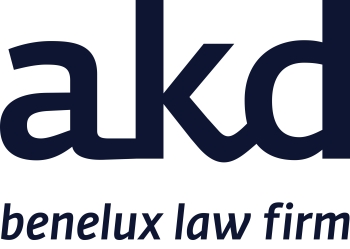Pursuant to the EU Accounting Directive (2013/34/EC), if certain conditions are fulfilled member states can exempt subsidiary undertakings from provisions concerning the content, audit and publication of annual financial statements and the management report. One condition is that the parent company has guaranteed the commitments entered into by the subsidiary undertaking. But what happens if a parent has provided such declaration – will it be liable for all of the damages suffered by a creditor through a breach of contract by the subsidiary if the creditor has granted the subsidiary full and final discharge in that regard? The Supreme Court recently held this to be the case.
The subsidiary company and a third-party creditor entered into an agreement. The creditor argued that the subsidiary had breached its contract, as a result of which the creditor held the subsidiary liable for all of its damages.
At the point when the agreement was concluded the parent of the subsidiary issued a comfort letter, pursuant to which it declared that it was jointly and severally liable for debts arising from legal acts of its subsidiary. Therefore, the creditor also held the parent liable for all its damages.
The exemption for subsidiary undertakings set out in the directive has been implemented in the Netherlands in Article 2:403 of the Civil Code. Article 2:403(f) of the code determines that the parent company must declare in writing that it is jointly and severally liable for debts arising from legal acts of the group company.
The creditor initiated a proceeding against the subsidiary and the parent. The creditor and the subsidiary entered into a settlement agreement, under which the subsidiary company paid €25,000 to the third party and the parties granted each other full and final discharge. Subsequently, the proceeding against the subsidiary was withdrawn.
The parent was not involved with the settlement, and the creditor continued its proceedings against the parent for the remainder of its claim (the original claim minus €25,000). The parent argued that the claim was extinguished as a result of the out-of-court settlement with the subsidiary and the full and final discharge.
The appeal court disagreed. It argued that the parent had declared itself jointly and severally liable for debts arising from legal acts of the subsidiary. This joint and several liability meant that the creditor, at its sole discretion, could claim performance from both the subsidiary and the parent provided that, as a result of the performance of one of them, the other would be discharged (Article 6:7 of the Civil Code). The creditor reached a settlement with one of the joint and several debtors, granted full and final discharge and waived its rights against that debtor. This did not mean that the creditor also waived its rights against the other joint and several liable debtor. Thus, that other debtor was not discharged of its obligations. The only consequence of the out-of-court settlement was that the debt was reduced by the amount agreed by the creditor and the subsidiary (ie, €25,000).
The parent appealed to the Supreme Court, which dismissed the appeal in cassation. The court confirmed that joint and several liability – as provided for in Article 2:403 of the Civil Code – cannot be equated with a suretyship.(1) The parent's liability was an independent obligation and the creditor could independently claim performance thereof. EU Directive 78/660/EEC and Directive 83/349/EEC, which were repealed by the EU Accounting Directive and form the basis of Article 2:403 of the Civil Code, did not refer to joint and several liability, but to a guarantee. However, the Supreme Court ruled that this did not mean that the ruling of the court of appeal was incorrect, because the directive contains five minimum conditions and allows national legislatures to require further-reaching liability.
The decision is important for Dutch law. Many group companies believed that a full and final discharge to a subsidiary constitutes the end of the matter. However, in the Netherlands this might not be the case for the parent. Therefore, a Dutch parent which has issued a comfort letter should be cautious in cases where a creditor enters into a settlement with a Dutch subsidiary. It should be recorded in the settlement agreement that the creditor also grants full and final discharge to the parent and waives any rights against the parent. Further, the parent should ensure that it is party to the settlement agreement or that it concerns a third-party clause in favour of the parent. This allows the parent to invoke the relevant provision of the settlement agreement.
For further information on this topic please contact Barbara Mutsaers at AKD by telephone (+31 88 253 50 00) or email ([email protected]). The AKD website can be accessed at www.akd.nl.
Endnotes
(1) According to Dutch law, a 'suretyship' is a contract whereby one party (the surety) obliges itself towards the other party (the creditor) to perform an obligation to which a third person (the principal debtor) is or will be bound towards the creditor. A suretyship is accessory to the obligation of the principal debtor for which it is concluded as security. The means of defence which the principal debtor can invoke against the creditor can also be invoked by the surety against the creditor if they relate to the existence, content or time of performance of the obligation of the principal debtor.
This article was first published by the International Law Office, a premium online legal update service for major companies and law firms worldwide. Register for a free subscription.



